A Chance Meeting With A Billionaire
2020 – a lawyer calls me for advice. He thinks his case can settle for seven figures. I know we can obtain multiples of that. So he brings me in. Immediately, he senses how I handle everything differently.
Three minutes into the mediation, the other side looked resigned. I’ve calmly presented the simple truth, leaving them exposed. The lawyer who sought my help has settled multiple million dollar cases but now enters a new stratosphere, ultimately winning 16.5 million dollars — precisely as I predicted.
I never intended to become a lawyer; building a business was my dream.
At 14, I watched Phil Donahue interview some businesspeople. I’d never heard of the word “entrepreneur” but it sounded cool; by the end of the show, I was all in.
After graduating with degrees in finance and marketing from Syracuse University, I almost joined an ice cream manufacturer to learn business fundamentals.
Then at 22, a chance meeting with a billionaire at the bar during a wedding changed my destiny.
“More Fortune 500 CEO’s have law degrees than MBA’s,” he advised.
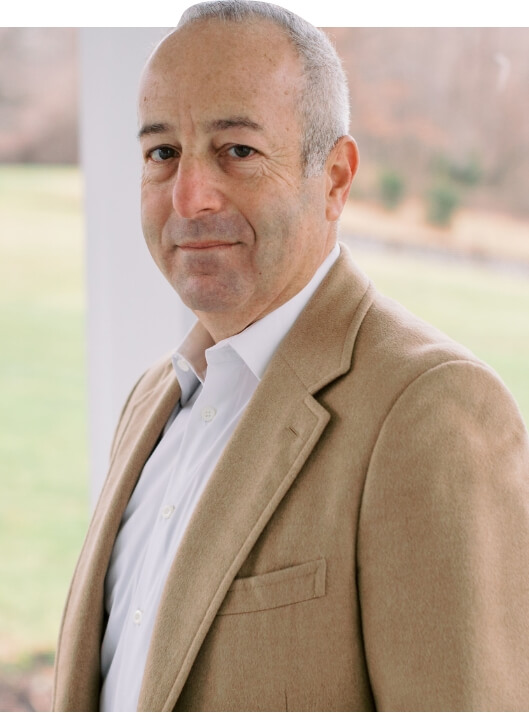
“More Fortune 500 CEO’s have law degrees than MBA’s,”
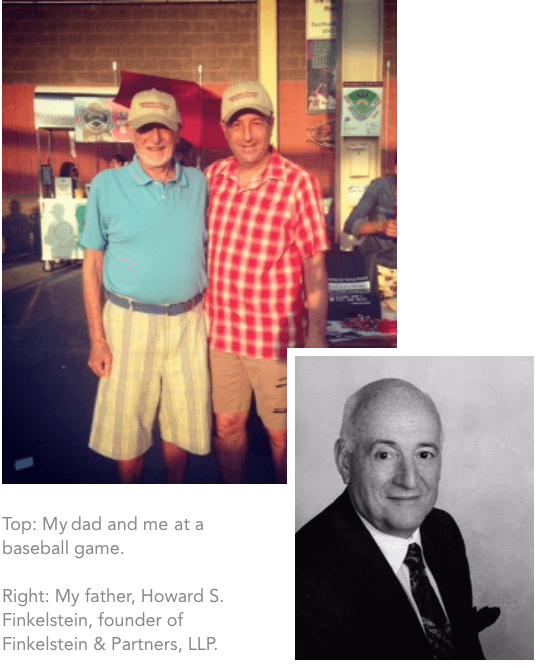
1991, while studying for the New York Bar, I called my Dad to meet for lunch. Would it be a good idea to work for his law firm while I found a business job?
The phone rang the next day. “My partners are so happy,” he exclaimed. “You’re joining the firm!”
“Huh, I thought we were just having lunch.”
24 hours later, I was in the deep end. My office was a small mail cart, and the day after I was admitted, I was picking my own jury in court.
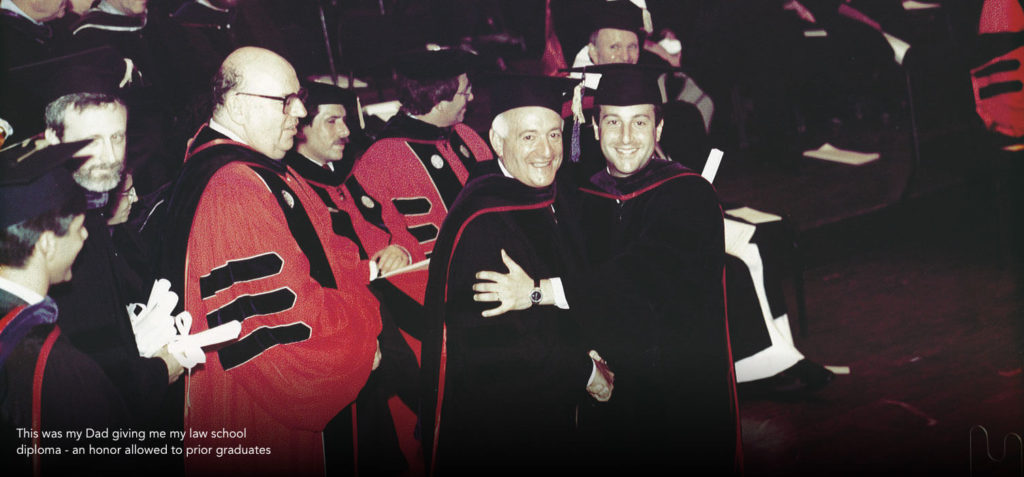
For years, I went from trial to trial, often picking three juries a week. I was always a competent lawyer, but a misjudgment took me to the Michael Jordan level.
2004, I gave a big case to lawyers who I thought were better than me. They were hard-working and competent but got wobbly knees, failing to close the case out, leaving millions on the table.
I needed to step up. Nobody says, “I’m a perfect lawyer.” They say, “I practice law.” With practice, I could improve.


I devoured countless books on influence, neuroscience, and why people make decisions (it’s emotion, never logic). I began testing my assumptions in focus groups, relentlessly reviewing every word I deployed. From this, I crafted stories that closed cases and empowered juries to say with their verdict,
“Never again — we will right this wrong.”
Shortly after joining Dad’s firm, I spotted an opportunity to grow beyond one location to build the business I always wanted. I got an MBA to workshop my growth strategy for the firm, while working full-time (with a full caseload, a toddler, and a pregnant wife at home).

Today, I’m the Managing Partner of five law firms with nearly 100 lawyers.

I’m not aware of another lawyer nationally who manages more than one firm, so I’m grateful for what we’ve been able to build. Our true competition isn’t other law firms — it’s great service companies like Apple, Amazon, and Google.
What energizes me the most at this phase in my career are opportunities to make other lawyers more successful.
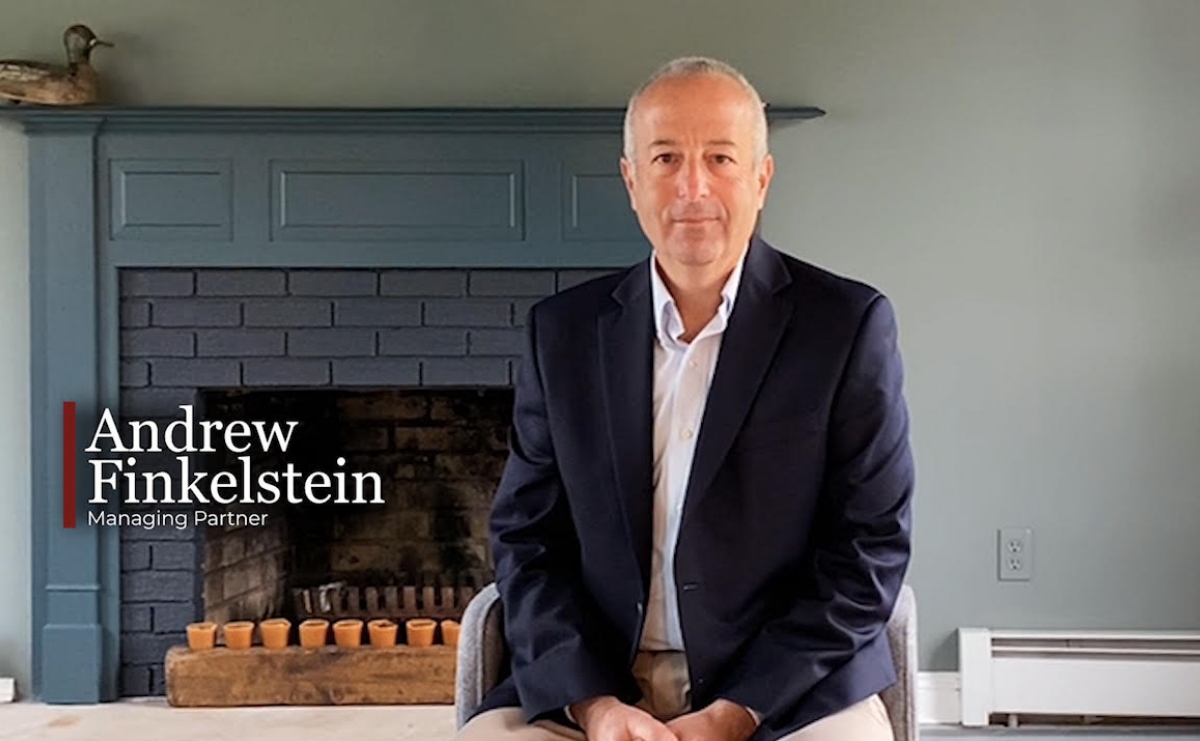
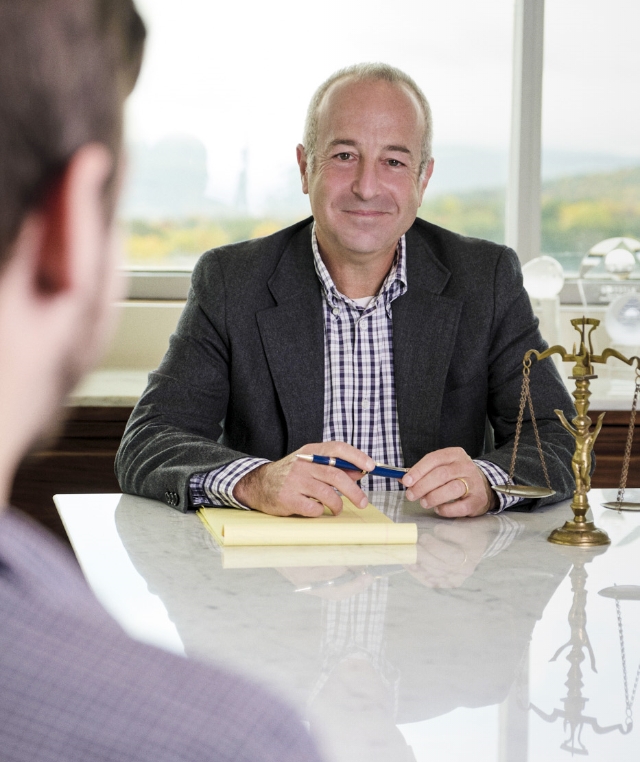
I love to mentor those who’ve tried everything but are missing a secret ingredient. Because of my practice size, I’ve examined thousands of cases, done over 400 focus groups, and am involved in over 200 cases each month.
I’ve handled over 2,400 wrongful death cases and my firms have recovered over 2 billion dollars.
There are very few fact patterns that I haven’t seen. We dissect cases, and I challenge everyone to think a little differently. It’s fun and, I’m often told, “Wow, I like my case a lot more now.”
I enjoy teaching how to be in a room with 100 lawyers at a “beauty contest” and always walk out with the client. It’s satisfying to show lawyers how to consistently win, increase the settlement sizes for clients, and grow their firms. I’ve had losses as well and I know how much they sting. But I’ve learned from each one.
It took me three decades of dedication to the craft I love to be in this position. Not every verdict has been a win but I’ve learned more from my losses than my wins. Work brings me joy and I don’t foresee ever stopping.
But, I’m most proud of our culture and staff longevity. We have 300 people on the team — many who have been with the firm for 30-45 years.
The Finkelstein & Partners, LLP, Family
I couldn’t be where I am without their support. I feel obligated to give back to everyone who trusted in me with their wellbeing and family livelihoods. So, each year I make certain that I have lunch with all our staff. I ask each one to write down the person who influenced them the most.
I hope that one day I’ve helped people in such a meaningful way that they would consider writing my name on their paper.
That would be a real legacy.
About
ANDREW FINKELSTEIN
In football terms, Andrew Finkelstein is a Super Bowl quarterback, coach, and general manager in the world of personal & catastrophic injury law.
As an attorney, he has achieved multiple seven and eight-figure recoveries and has been involved in thousands of cases over the course of his 30+ year career.
He is the managing partner of five law firms with nearly 100 lawyers, and is an expert in developing and implementing efficient, profitable, and scalable business systems.
On top of all this, he is passionate about coaching and mentoring other lawyers, teaching them a proven system to maximize case value on their biggest cases.
With his guidance, his firms have recovered over $2.3 billion. Outside of his firm, Andrew has helped hundreds of lawyers recover seven and eight figures in settlements and verdicts on their most challenging cases.
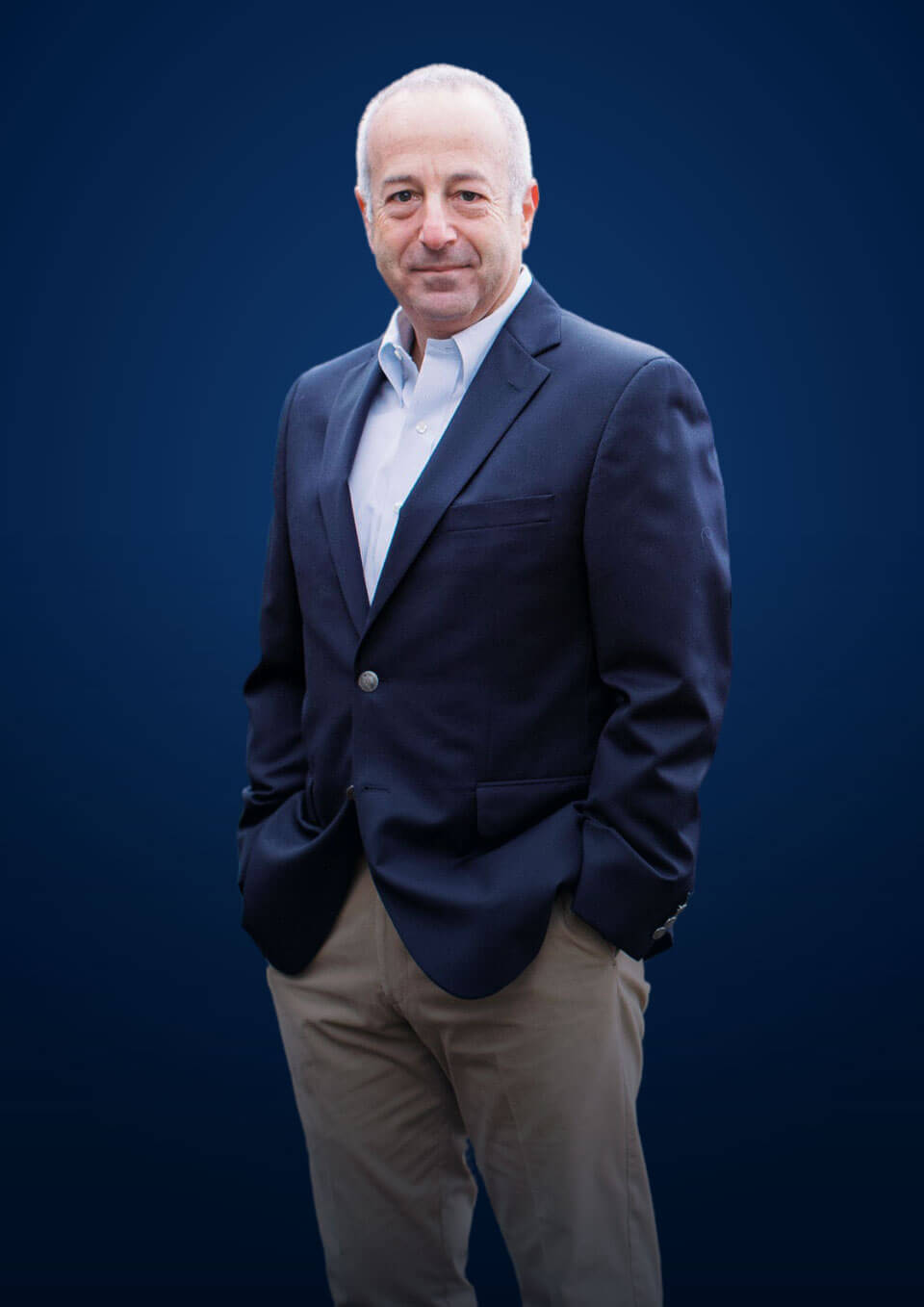
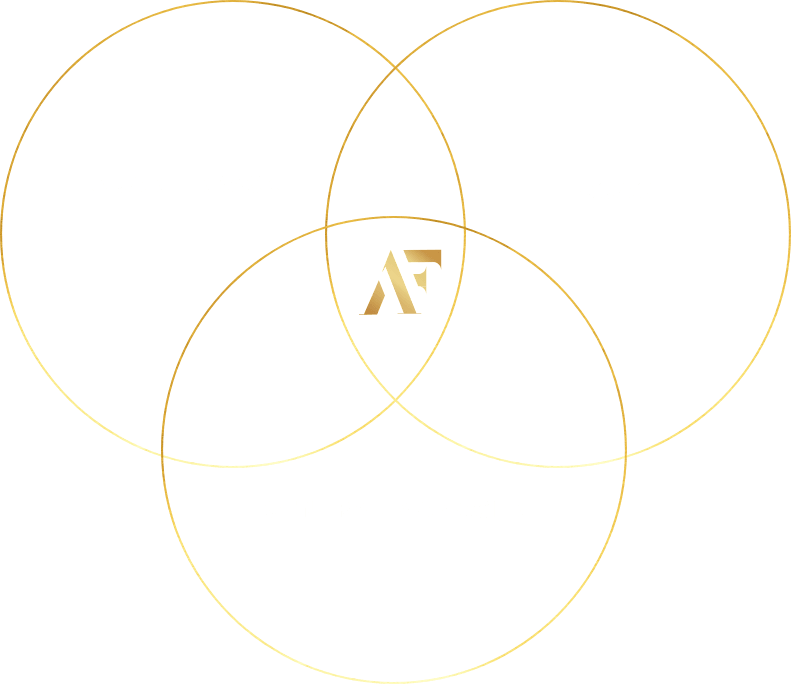
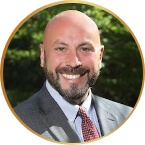
“Working with Andrew has completely changed all of that and given me a more systematic approach. It’s like having one of the Trial Guides Authors coaching in your corner.”
“I had achieved substantial victories at trial but I have usually felt that the case was worth more than the jury awarded. I knew there was an elite class of trial lawyers in this country that I could never quite match up to. Although I had been successful, I knew my results could be much better. Very often, my team and I just didn’t know how jurors were going to respond. How to make the most persuasive visual presentation. How to take complex issues and make them easy to understand. Working with Andrew has completely changed all of that and given me a more systematic approach. It’s like having one of the Trial Guides Authors coaching in your corner.”
About The Firms
Diller Law, P.C. has represented wrongfully injured clients for over three decades, and that experience shows in the work they do. Diller Law is recognized by clients and colleagues as a highly professional, ethical, and experienced personal injury law firm, handling serious and significant personal injury cases.
Founded in 1959 by Howard S. Finkelstein, Finkelstein & Partners has grown from one office to multiple offices in New York and New Jersey, with a staff of more than 85 attorneys and 170 para-professionals. We remain dedicated to providing our clients with personal service and unsurpassed legal representation and client service.
My core values

Deterrence Is My Purpose
The reason I practice law, above all else, is deterrence. It is my purpose to deter actors from engaging in bad behaviors by ensuring there are consequences when they do. This drives all my decisions.

Always Learning
I love the practice of law and I’m constantly seeking to improve my craft. That’s a big reason why I continue to practice and coach. I learn as much from the person I’m coaching as they learn from me throughout the process.

Effort
While presenting a simple persuasive story at trial appears easy and fluid to the jury, it takes hours of hard work and practice to deliver an effective presentation. Practicing openings and summations before focus groups exposes weaknesses in arguments and allows them to be fixed before the real jury is empaneled. I’ll be side by side with you during your journey and will assist you in becoming the best attorney possible.

Humanity
I aim to treat every client and potential client with compassion. Too often, this is something lawyers forget, especially when dealing with a prospective client who has just suffered a catastrophic loss.

Speaking Their Language
Similarly, lawyers forget that jurors are people, too. They are not lawyers. They don’t know or care about your jargon, your big words, your accolades or your achievements. Speak to them accordingly.

Persuasion
I really don’t believe you can change someone’s core belief. The important thing is to identify what is the core belief you’re asking them to embrace and who already believes it? Most lawyers fail to do this. Persuasion is really easy when you can find someone who already agrees with the principles behind your core argument. This is rooted in the foundations of logos, pathos, and ethos.




